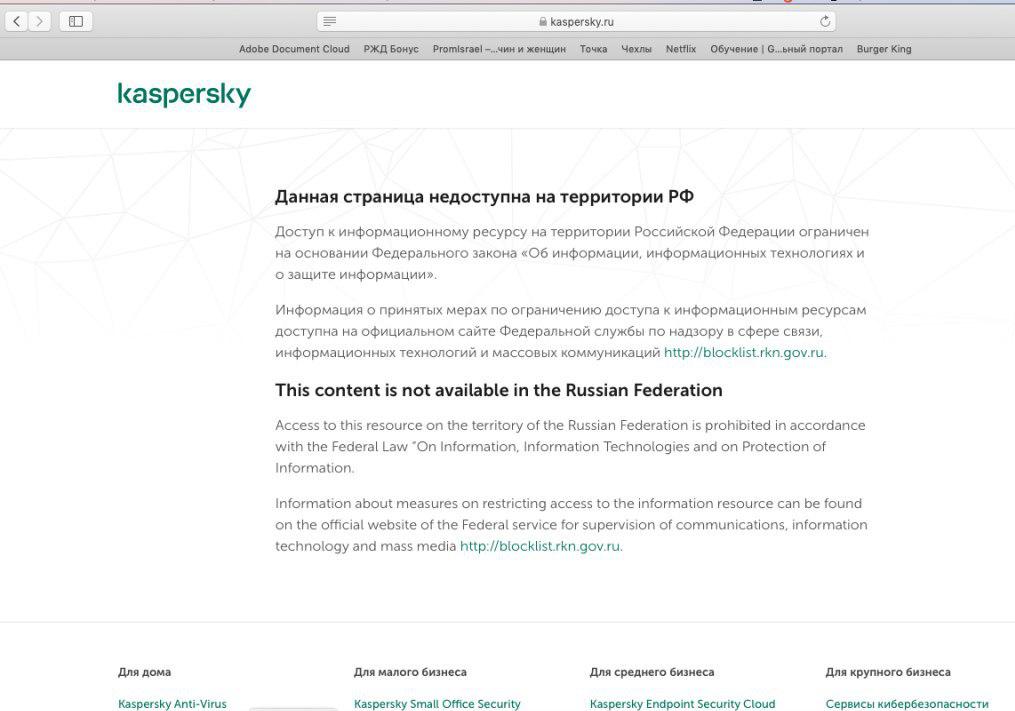
In order to prevent citizens from accessing objectionable content, from pirate sites through to extremist material, Russia operates a national blacklist.
This centralized database of domains, known locally as FGIS (Federal State Information System), is checked by Internet service providers which then block their subscribers from accessing forbidden sites. Of course, services like VPNs, Tor and various anonymizers, are able to circumvent these measures, a point not lost on the authorities.
In 2017, a new bill was signed into law aiming to close the loophole. As a result, if tools with the ability to circumvent the blacklist don’t play ball by respecting its contents, they also face being blocked by ISPs.
This proposal came to head earlier this year when telecoms watchdog Roscomnadzor wrote to several major VPN providers – NordVPN, ExpressVPN, TorGuard, IPVanish, VPN Unlimited, VyprVPN, Kaspersky Secure Connection, HideMyAss!, Hola VPN, and OpenVPN – demanding compliance.
The VPN services above were given 30 days to respond but most either ignored or flat-out rejected the demands. Only Russia-based Kaspersky offered to cooperate and it now appears the security company is censoring websites as ordered.
According to digital rights group Roskomsvoboda, Kaspersky is now fully respecting the contents of the FGIS database and actively blocking domains, including the many ‘pirate’ sites that are permanently blocked in Russia after repeatedly failing to respond to copyright complaints.
Citing tests carried out by various users of Kaspersky Secure Connection, the group says that attempts to access banned domains now result in a warning that the material is inaccessible via the service.

Users of Kaspersky’s mobile application are reportedly less-well-informed. Rather than the blocking page above which appears in desktop-based browsers, users are greeted with an ‘ERR CONNECTION RESET’ message when they attempt to access a ‘banned’ site.
It’s unclear whether Kaspersky decided to comply simply because it’s based in Russia or whether being blocked itself would be a step too far for the company. It’s likely that both played a role but fresh news coming out of the country suggests that earlier claims that non-compliant VPN providers would be blocked themselves may have been a little premature.
At the start of June, telecoms watchdog Roscomnadzor indicated that the blocking of nine previously-contacted VPN providers was imminent but now, less than a month later, authorities might be pulling back from the brink.
“We have the right to block VPN services that do not comply with the law, but there is no obligation to do so at any specific time,” said the head of Roskomnadzor, Alexander Zharov.
“There are nine services that do not execute the law. We may wait for fines under a new law. We are not ready to discuss a specific plan for our actions.”
Last week, Library Genesis (Libgen), a huge online repository of free books and academic articles, became the latest ‘pirate’ addition to Russia’s national blacklist.
Following a lawsuit filed by Springer Nature in 2018, the platform has now been labeled a repeat infringer, meaning that the domains libgen.io and lgmag.org are now permanently blocked by the country’s ISPs.





